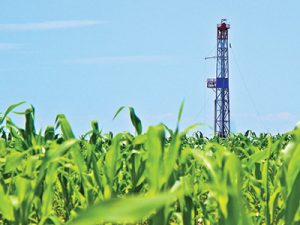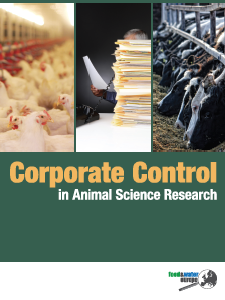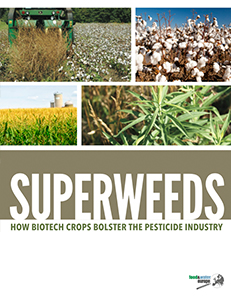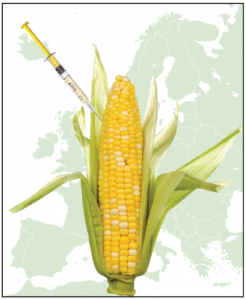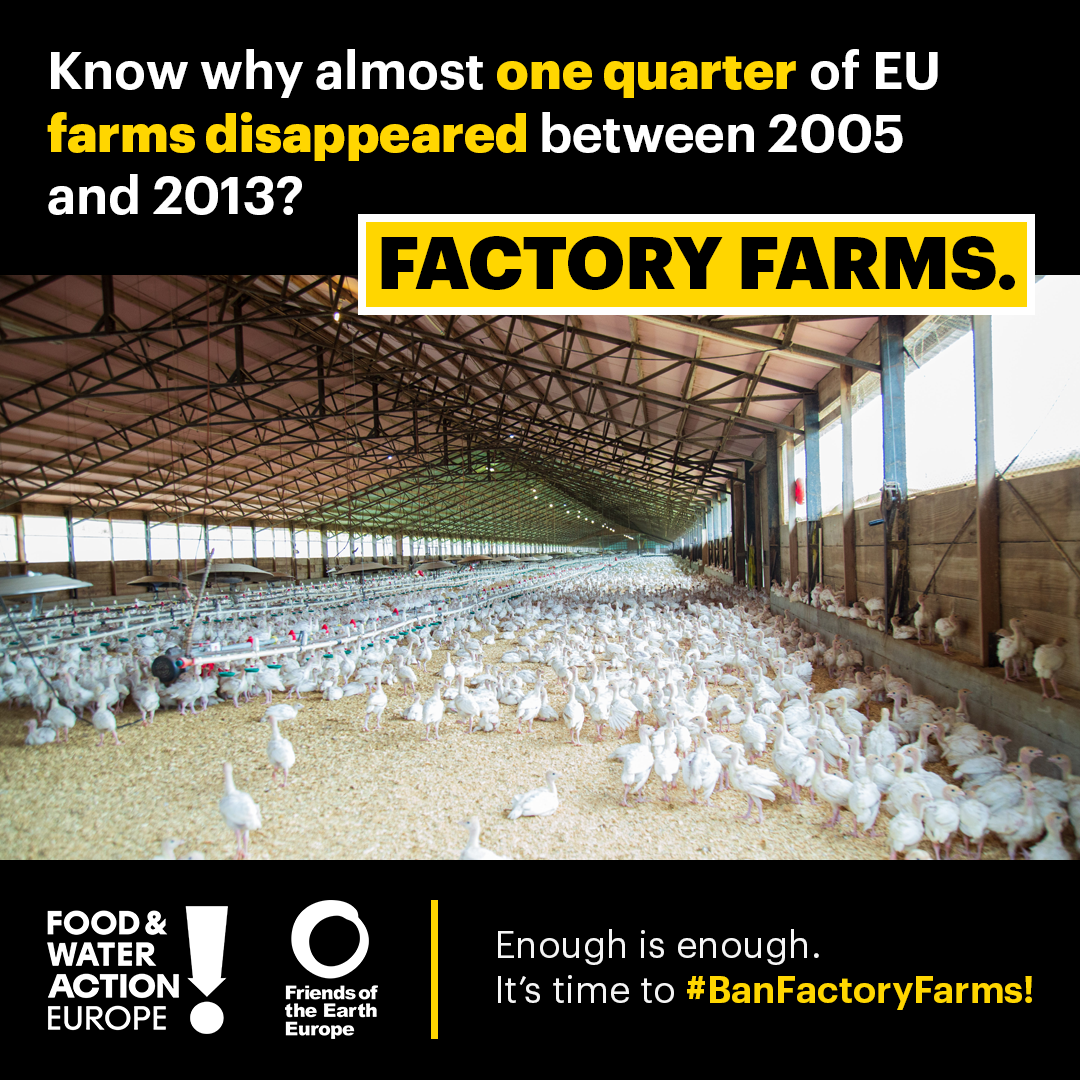
The number of farms in the European Union has declined very rapidly in the past decades, largely as a result of disastrous agricultural and trade policies. At the same time, meat production in many EU countries is increasing, driven especially by exports. The remaining farms are becoming ever-larger with a lower diversity of animal breeds. This has seen a rise in factory farms, characterised by large numbers of animals being confined in crowded spaces with insufficient pastureland to feed the animals – meaning that feed has to be brought into the farm.



